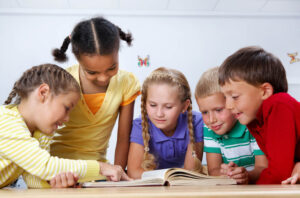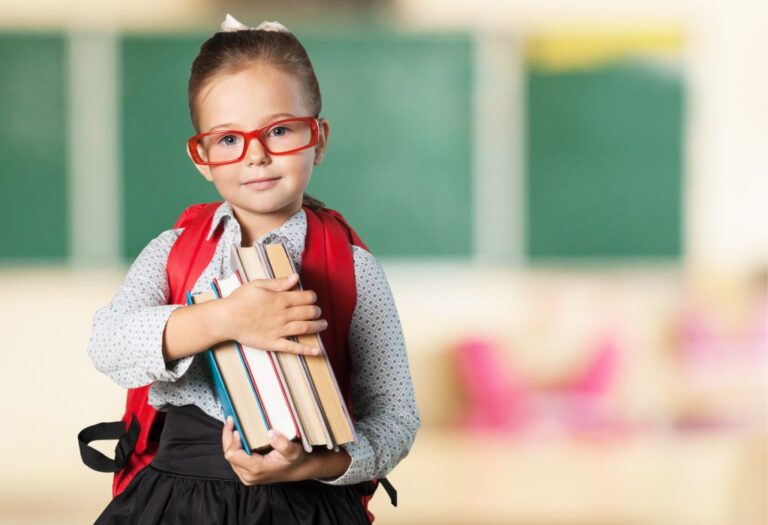School education including 6th grade common core ela is not just about passing knowledge from teacher to student. From the first grade to the delivery of a diploma, the child must not only learn a short course of various sciences, but also learn to work as a team, socialize, and develop as a person. The world is changing, but has the school kept up with these changes? What should be the school of the future that is able to provide the conditions for a child’s development?
School starts with a building.
In Soviet times typical school buildings were erected to suit the purpose of Soviet education: to teach all children the same things. Similar classrooms on every floor, the same layout on every floor, the same buildings all over our immense country. Such buildings no longer meet the needs of modern education. Unfortunately, new buildings in Russian schools most often replicate old models.
School architecture and 2nd grade ela should help to achieve educational goals and should be designed in accordance with them. If we want school education not to be reduced to the teaching of different subjects, but to form the personality and its competencies, then the building should have universal classrooms, not just physics, geography, and so on classrooms. Classrooms should be for different forms of work: group, individual, frontal.
In my travels in different countries, I saw such school buildings that corresponded to modern educational goals. For example, this is Ayb in Armenia and schools in Finland.
But the most important thing in the educational process, of course, is not the buildings, but what happens in their villages.
The school is not just classrooms.
The ideal school is not isolated from the world, but open to it. That is why it should have more than just classrooms. I believe that the school complex should organize the production of products that are in demand for educational purposes. This could be a greenhouse, a workshop – furniture, art, whatever, depending on the educational program. The school should be an opportunity for artistic creativity, because it is one of the lines of child development.
Designers of modern schools push libraries into basements, on upper floors, thinking that paper books are outdated. In a sense they are right. But if we look at the library as a center of providing information, not just as a book repository, it is immediately at the heart of the school. It is there that all those involved in the educational relationship – children, parents, teachers – can draw information for their work.
Sitting at desks can be different
Children do most of their work in school sitting down, but that doesn’t mean that three rows of desks with seating for two is the only option. It is suitable when there is frontal work in the classroom: the teacher speaks and the students listen and take notes. If discussion or group work is envisaged, children should have an opportunity to sit, stand, walk around the classroom. Moreover, the classroom should be adapted for different tasks at the same time: some children are doing individual tasks, others have a group project, and others are resting at the same time. Without mobile furniture and appropriate zoning you can’t do without it.
What the school should teach
Education cannot be focused only on subjects. A student must develop as a person, be able to do many things that do not fit into one subject, and have knowledge from different branches. The task of the ideal school is not simply to impart knowledge. If only because knowledge becomes obsolete, and either it won’t be enough in 5-10 years or it won’t be in demand. Many smart people today say that school should teach how to learn.
The real school lacks the completeness of the educational outcome. There is a lack of emphasis on what is outside of the academic disciplines. For example, I believe that the school does not pay enough attention to the figurative and artistic perception of the world. This function is assigned to literature, but its lessons more and more often resemble literary studies. The world art culture is not taught everywhere, and when it is, it often boils down to art history. That is, the artistic and figurative component is being washed out. There is a serious skew in the educational process toward the natural sciences.
Foreign languages are taught here mostly as linguistic subjects. They teach for many years, and then they can neither read nor speak. But language is a means of communication. That is what we should focus on.
I would also point out that today’s school lacks team sports. Physical education is more about individual development and could teach group work.
Challenges for the school of the future
The uncertainty of the future is much more acute today than it was half a century ago. Planning for the years ahead has become difficult, because whole professions are dying out and new ones are appearing very quickly. With what baggage should a graduate leave school?
We tried to find an answer to this question. With Russian businessman and philanthropist Albert Avdolyan, who finances the project, we identified the main educational result of the Smart School: we need to teach children to manage their own lives responsibly. Because this will allow them to make serious decisions, no matter how their life turns out and no matter what the future may be. The task of the school is to raise creators who are aware of the full extent of their responsibility, who know how to develop and interact with others.
Fathers and Children
Today’s parents, who are used to helping children with their homework, often complain that they cannot cope with such a task. But this says little: parents were educated at other times and in other programs. And it is wrong to take over your children’s functions and learn instead. Another thing is if the child can not cope with homework: then it is a problem of load selection and the need to adjust the curriculum, which is in the competence of the school
For the child to really learn, and not just attend classes, the school and parents must cooperate. The family is the customer of education, and it has the right to know what is happening at school, to demand compliance with educational standards. But parents should not interfere directly in the educational process.
School and upbringing
Today education is training plus education. This fact is not disputed by anyone, it is written in all normative documents and in the law of education. We cannot say that the modern school doesn’t educate. It can not live without it, and should not. But education often boils down to instruction. This does not work, and both the Soviet educational system and the pre-revolutionary Gymnasium are vivid examples of this. In the 1920s, churches throughout the Soviet Union were destroyed by Komsomol members who had studied the law of God in tsarist Russia. And at the end of the 20th century capitalism with its wild variations was built by graduates of Soviet universities who all passed scientific communism.
It is not the word that educates, but the way of life. If at school we say, “Be honest and faithful to the collective,” but life shows us how dishonest people win, how individualism is more important than collectivism, what kind of education is that?
How to bring up a person who is told one thing at school, sees another in his family, and in life in general a third? Only by the parents’ and teachers’ own way of life.
What should be a teacher
From a good teacher in our time is required not only to be an expert in their subject and know how to find an approach to the child. A teacher must be able to organize the educational process in such a way that every student can find himself or herself in it.
A teacher is not required to be superpowered to lead children. The time of leaders is over. We have to move from uniformity to individualization. We are gradually abandoning the idea of “Listen to me, children, I know what you need” and coming to another idea: “I can help you decide what you need. Children are different, they have different lives ahead of them, different educational paths.
Who can be that kind of educator? Someone who is capable of learning, and it doesn’t depend on age. The modern educational system is not yet very good at training new professionals, but the situation is changing. The world has become complex, a complex person has appeared in it, and it requires complex solutions.
